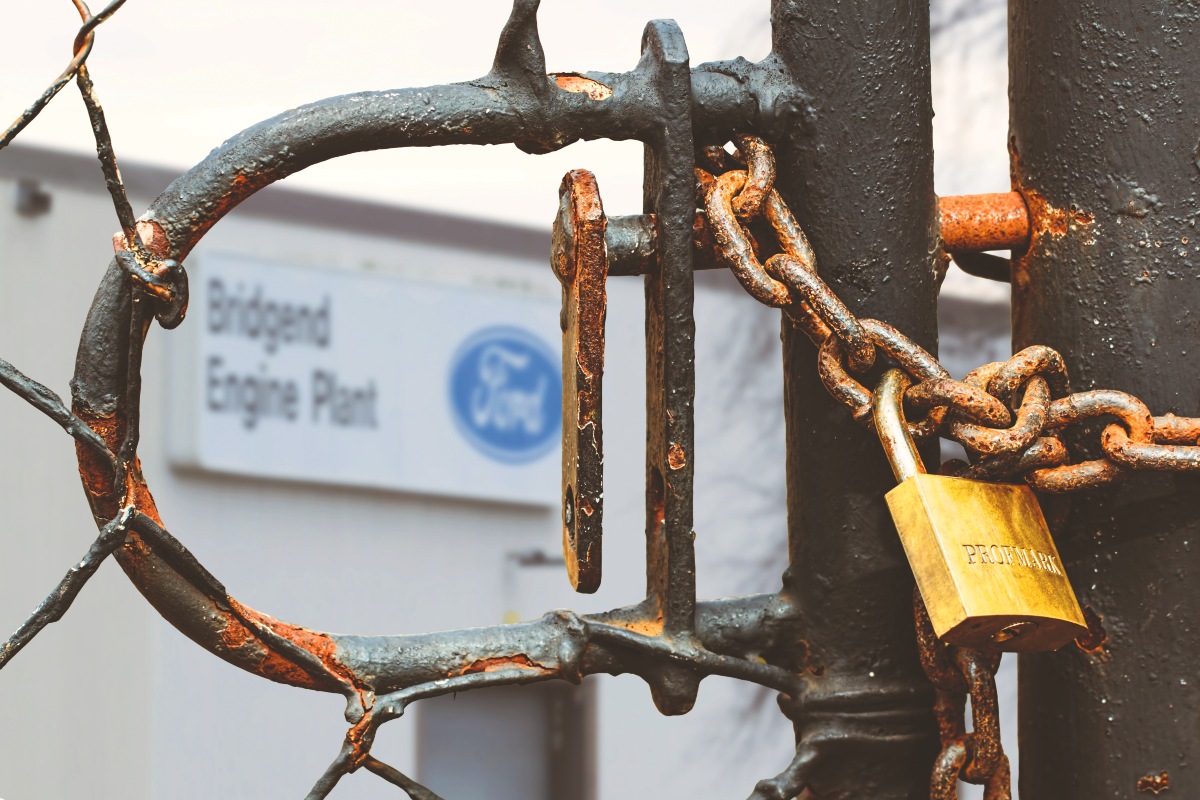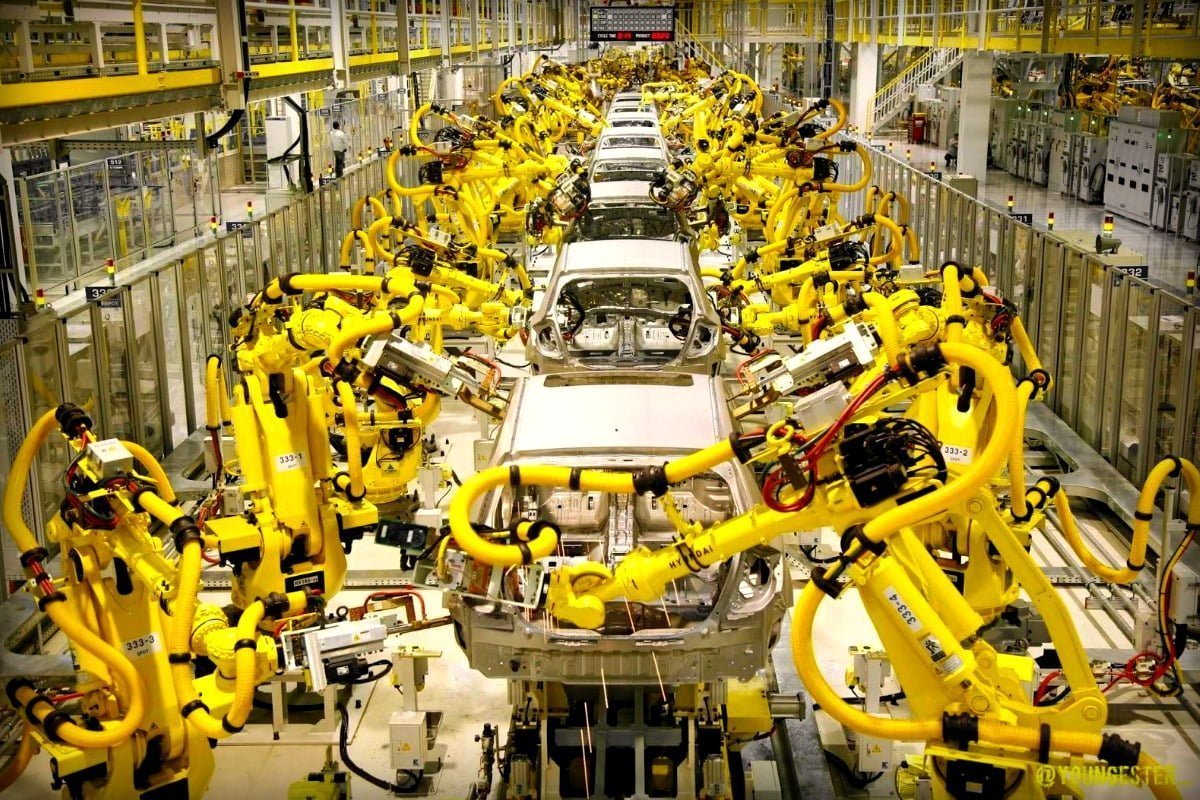A perfect storm of Brexit, the pandemic, and economic slump has accelerated the decline and demise of UK industry. The car manufacturing sector has been hit particularly hard. The unions must organise a fightback and demand nationalisation.
Coronavirus strikes the old and vulnerable the hardest. Unfortunately this is true for both people and industry.
Whilst tech firms have enjoyed a bonanza (Apple is now worth more than $2 trillion) the UK car industry is at death’s door. Production in the automotive manufacturing sector collapsed by 92% between April and May. The first half of 2020 saw the lowest numbers of cars produced since 1954.
In 2016, the bosses – drunk on droplets of cheary economic news – had predicted that Britain would be producing two million cars by 2020. The reality is that production will remain lower than 1.2 million until 2025. And even this is considered optimistic by most analysts, as it would require a full trade deal with the EU – something that is clearly not on the cards.
Who will pay for this crisis of epic proportions? Naturally, under capitalism, it is the workers.
Already 13,000 jobs have been lost from the automotive industry, with thousands more already announced. Speculating about the future of the sector, the CEO of one car dealer group predicted: “In the best case, it’s tens of thousands [of job losses]; in the worst case it’s more like 150,000.”
Decay and decline
 Let’s be very clear: the UK car industry has not been defeated by a virus, but rather by the parasitical short-termism of the capitalist class. The virus was an ‘accident’ that laid bare the senile decline and decay of British capitalism – a process that has been taking place for over 100 years; and which has gutted industries from steel to shipbuilding to car manufacturing.
Let’s be very clear: the UK car industry has not been defeated by a virus, but rather by the parasitical short-termism of the capitalist class. The virus was an ‘accident’ that laid bare the senile decline and decay of British capitalism – a process that has been taking place for over 100 years; and which has gutted industries from steel to shipbuilding to car manufacturing.
During the early 20th century, British car manufacturing had its foot on the accelerator. Spurred on by the war, Standard and Rootes played a transformative role. And by 1950, more than half of all car exports were British. Cities like Coventry experienced a golden age.
Despite these immense successes, ultimately car manufacturing was the rearguard action of a nation already in secular decline.
The British capitalists were comfortable skimming off the vast wealth of the colonies. Mesmerised by the speculative movements of stocks and shares on the market, they left the real economy behind.
When faced with a rising tide of class struggle, the bosses prefered to mothball entire industries, rather than develop production.
All of this manifested itself in a chronic failure to invest in the modern technologies and factories required to remain competitive. Germany and Japan – freed from the burden of their arms industries by postwar arrangements that had been forced upon them by Allied imperialism – soon dethroned Britain. America was not far behind.
Crisis accelerates
The 1970s saw the crisis accelerate. British Leyland dropped from 40% market share to 32% in just three years. Coventry, the home of UK car manufacturing, lost 14,000 jobs between 1975 and 1982.
And when the Lord Mayor held a conference to discover the cause of this decline, the answer was clear: continued underinvestment. The 1974 government enquiry by Lord Ryder came to the same conclusion.
By 1994, not one British-owned mass producing car company was left. The production that continued was now led by French, American, Japanese and German companies. It was a damning indictment of Britain’s fall to the rank of second-rate power.
Those who believed that handing the reins of UK car manufacturing to a different capitalist class would lead to respite were deeply mistaken. As Martin, an ex-convenor and 35-year veteran of the car industry, explained to Socialist Appeal:
“Thatcher’s counter-reforms meant it was always easier for the bosses to sack workers than increase investment; for despite excellent technical know-how, automation was always delayed. When the opportunity came to move the plant to Slovakia – and in doing so cut wages by 70% – the bosses didn’t miss a heartbeat”.
Today, cars made in Britain account for less than 2% of worldwide production.
Nationalisation needed
 Coronavirus has now sent the capitalists crying cap-in-hand to the government, pleading for bailouts.
Coronavirus has now sent the capitalists crying cap-in-hand to the government, pleading for bailouts.
But we must be clear: There must be no bailouts for big business bosses. This crisis has been caused by more than half a century of mismanagement and underinvestment by these fat cats. The major manufacturing and industrial monopolies must be nationalised – without compensation, and under workers’ control and management.
Fool us once, shame on you! Fool us for 70 years, and the shame is on anyone who believes that private enterprise has any progressive role left to play!
“We have some of the best mechanics and highly-skilled workers in the world!” says Martin. “For years the unions have shown that with proper investment, Britain’s car manufacturing could be leading the way in green vehicles. But is the government prepared to step in where the capitalists have failed?”
The answer is no. The Tories are the political representatives of the British capitalist class. As long as the economy is owned, controlled, and dominated by the bosses, every element of the state will serve as the handmaiden of these parasites.
Organise the fightback
We need a socialist Labour government to do away with this wretched state of affairs. Only by nationalising car manufacturing and placing it under democratic workers’ control can we save jobs, introduce modern technologies, and reverse the decline of British industry.
This is what the labour movement – especially the leaders of Unite the Union, which represents workers in the UK car industry and other manufacturing sectors – should be fighting for; organising industrial workers to strike and occupy where plants and factories are threatened with closure.
As Martin concluded, reflecting on the future of UK industry:
“The future looks very grim. But we still have an organised labour movement. Whereas in the recent past we have failed to harness the potential power of our movement to fight against austerity, cuts in health care, public services, pay and jobs, or to elect a Labour government with our values, it is now urgent that we to learn from our failings and some modest successes to build our movement so that we can defend and enhance the gains we have made.
“COVID-19 is giving the bosses the excuse they need to shed labour so that workers pay the price for the crisis in the system. A tsunami of job losses and further public service cuts is already upon us. We have members in our movement who have the skills, experience and ability to give hope that the future can be different.
“All we need now is a unified movement with a programme and a leadership that is willing to fight to defend job security, decent pay, terms and conditions at work. We must put paid to the hand-wringing and lamentations when job losses are announced. If we don’t begin to fight back, our own members and our own class may lose hope in the future. That could set us back decades.”






